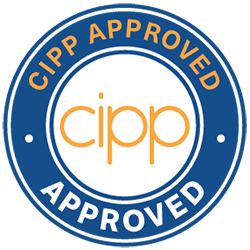Are you considering enquiring? Please note: All courses listed are paid courses, though many providers offer flexible payment plans. Speak to a course advisor to find out more by making an enquiry today.
Course overview
PAYE income tax and NICs are remittances all employers must deduct and forward to HMRC on time. Calculating these is a fundamental skill for all in payroll. This training provides a solid grounding in these core areas. It will give you the Pay As You Earn (PAYE) and National Insurance Contribution (NIC) skills necessary for the preparation of manual payments, correction of errors and the understanding of systems output. Comprehensive documentation is provided, and practical exercises and discussions will be undertaken.
This course forms part of the three-day Introduction to Payroll course, but can also be attended as a stand-alone course. Learning is offered either online or in-person and includes one full day of face-to-face content or two half days of online content. Materials will be released in advance of the course and will be available to you through the CIPP online learning platform.
- 7 CPD points
- Part of the Essential payroll group
Course fees:
- CIPP Non-members price: £495.00 + VAT – In-class or online
- CIPP Members price*: £395.00 + VAT – In-class or online
What you'll learn
Beginning with calculating gross pay and establishing the different categories of deductions, this course moves to cover in-depth the rates, thresholds and methodologies to manually calculate income tax and NICs using both manual and table methods. The course also covers the differences in calculation for employees starting or leaving and heat is required to be shown on a payslip.
At the end of the course you will be able to:
- Calculate gross earnings
- Calculate income tax and NICs liabilities
- Handle payments for starters and leavers correctly
- Sequence the required calculations correctly
- Outline the correct process for systems output
- Calculate net pay
By the end of the course, you will be able to perform a gross-to-net calculation for income tax and NICs, understand the extra considerations required for calculating these deductions for starters and leavers and identify the information required on a pay statement.
Study method
- In-class
- Online
- Blended
Locations
- England
- Birmingham
- London
- Manchester

coursesonline.co.uk customers are now eligible to apply for an XO Student Discount Card.
Enrol in a course today to unlock exclusive deals.
Duration study load
Two consecutive half days for the online option or one full day for the face-to-face option
Note: Training course starts at 9:30 am
Entry requirements
This course is an introduction to manual tax and national insurance calculations, however, some familiarity with payroll processing is required. So that you can get the full benefit from the subjects in this course, we recommend that you have a basic understanding of the payroll function. For individuals completely new to payroll we recommend that you complete one or all of the following courses before attending:
- Payroll for Non-Payroll Professionals (1 day trainer-led course)
- Calculating Income Tax (1 hour eLearning module)
- Calculate National Insurance (1 hour eLearning module)
Pathways
- Essential Additions to Payroll Basics
- Introduction to Statutory Payments
Testimonials
-
Lisa RossIntroduction to income tax and NICs"Really excellent course, tutor was very knowledgeable and answered all questions thoroughly"
Who's it for?
While modern payroll software is sophisticated, and calculations for the statutory deduction of tax and national insurance mostly happen automatically, it is still critical that those who work with payroll systems know how these calculations work.
Manual calculations may be required to:
- Prepare manual payments
- Correct errors
- Calculate the value of overpayments
- Understand systems output
This course will be delivered by an expert CIPP-certified payroll trainer, who will give you ample opportunities to ask questions and test your knowledge about the subject through interactive exercises.
This course is a great start to your learning in payroll.
Subjects
- Classifying taxable and NICable pay elements
- Calculating pay apportionments correctly
- Ascertaining what makes a deduction from pay lawful
- Distinguishing deductions which affect taxable & NICable pay
- Overview of tax relief methods for pension contributions
- Listing the NI category letters currently in use
- Identifying the correct NI category letter for employees
- Awareness of proof required to apply certain category letters
- Recognising the names and current amounts of NIC thresholds
- Listing the current rates of NICs for each category letter
- Calculating NICs using the Exact Percentage method
- Calculating NICs using the Table method
- An overview of the changes to national insurance and the introduction of the Health and Social Care Levy
- Identifying circumstances which warrant “emergency tac codes”
- Categorising different tax codes
- Distinguishing Scottish tax codes
About CIPP
The Chartered Institute of Payroll Professionals (CIPP) is the Chartered Institute for payroll, pensions and reward professionals in the UK. With more than 9,500 individuals benefitting from the CIPP's membership benefits and CIPP-approved qualifications and training, the Institute is dedicated to raising the profile of payroll in businesses across the UK.
IPP Education Ltd (IPPE) is a wholly owned subsidiary of the CIPP. IPPE is an education and training provider specialising in payroll, pensions and reward, that develops, delivers, assesses, and awards its products to the relevant industry standard.
Why choose IPPE?
- All content is developed in liaison with employers and industry leads within payroll, pensions and reward.
- All of IPPE’s products are CIPP-approved for quality and legislative compliance.
- Our training courses are delivered by professionals active within the payroll, pensions or reward industries.
- Our end-point assessments are conducted by qualified assessors active within the payroll industry.
- Our qualifications are delivered and assessed by qualified tutors active within the payroll, pensions or reward industries.





